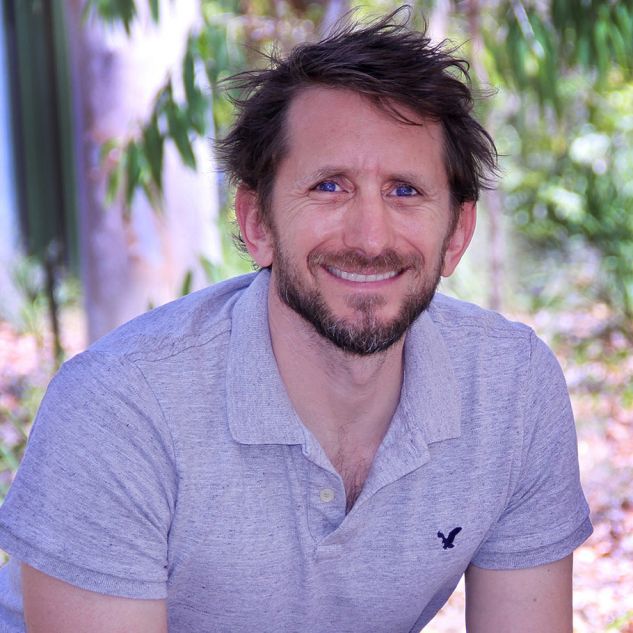College
College of Arts, Society and Education
Publish Date
23 January 2019
Related Study Areas
Tackling climate change
A JCU Professor is combining social science methodology with ecological study to better understand one of the world’s most pressing climate-change related issues – the survival of coral reef ecosystems and the human populations they support.
“If you have ever seen a bleached reef… it just leaves you with an eerie feeling,” says Professor Joshua Cinner, who witnessed firsthand the devastating impact of mass coral bleaching events in 1998 and 2016.
“Knowing how dependent people in many parts of the world are on coral reefs, it made me really want to study how people are likely to be affected by events like that, and what they can do to adapt and respond to the changes that are very likely.
“Even if we curbed carbon emissions tomorrow, we’ve already committed as a society to very substantial changes in the ecosystem.”


For the past five years, Prof Cinner has been leading a group of 40 scientists as part of the interdisciplinary Social Ecological Research Frontiers team.
The team has put together the world’s largest database of social, environmental and ecological drivers of coral reef fish degradation, which provides a global-scale look at what is often a locally-investigated and managed issue.
“Understanding the resilience of systems is absolutely critical in supporting the persistence of coral reefs and the well-being of the millions of people that depend on them,” Prof Cinner says.
“We’ve had some really surprising results, which have helped shape my research direction. We found that, contrary to popular belief, market proximity or market integration is the strongest driver of fish degradation and not human population.
“I’ve just started working with a behavioural economist and we’re running economic experiments in coastal fishing villages to try and understand how the very presence of markets actually change certain types of human behaviours.”
Hope for the future
In 2016, Prof Cinner’s work led to his article ‘Bright spots among the world’s coral reefs’ appearing on the cover of Nature. It went on to feature in more than 100 news publications and broadcasts including The Atlantic, LA Times, BBC, Washington Post and the Daily Mail.
Bright spots, or ‘positive deviants’, are coral reefs found to be performing better than expected given the adverse conditions they are being exposed to.
“This type of bright spots approach has been used in social science fields such as human development and even business to uncover strategies that work in a context of widespread failure,” Prof Cinner says.
“We injected this idea at a time when coral reefs are facing multiple threats on various scales. A lot of news about coral reefs is very dire and disappointing, so it’s nice to have this positive news about these places that are doing better than expected.”
Prof Cinner first joined JCU while undertaking research in 29 coastal communities across Papua New Guinea as part of his PhD from 2002 to 2006. Soon after, he joined the Australian Research Council Centre of Excellence for Coral Reef Studies, which undertakes world-best integrated research for sustainable use and management of coral reefs based at JCU.
“JCU was the natural choice… it’s the university of the tropics,” Prof Cinner says. “It is pretty difficult to beat the research environment not just at JCU, but within the Centre itself.
“It is an exceptional place for the type of research I do. I have a team of emerging scientists who are really top in their field and doing some exciting work.”
In September, Prof Cinner received the highest recognition one can get from their peers, being elected a Fellow to the Academy of the Social Sciences in Australia.
“It’s particularly exciting because I’m a social scientist by training, but a lot of the work I do is in the interdisciplinary space linking social science and ecology,” Prof Cinner says. “So, it is very nice that my work is recognised as meaningful and impactful to the core social sciences as well as in that interdisciplinary space.
“To nerds like me, it is akin to getting inducted into the Rock ‘n’ Roll Hall of Fame.”
The Academy of the Social Sciences Australia represents more than 600 leading academics shaping Australian policy.

Featured researcher
Professor Joshua Cinner
Reef Research Leader; Social Science (Future Fellow)
Prof Joshua Cinner’s research is focused on using interdisciplinary science to improve coral reef management. He works closely with ecologists on topics such as: defining the conditions that lead to successful marine conservation outcomes; locating and learning from conservation ‘bright spots’; and examining how coastal societies and ecosystems respond to global environmental change.
Prof Cinner has published over 140 peer-reviewed journal articles and has worked in Australia, Chile, Indonesia, Jamaica, Kenya, Madagascar, Mexico, Mozambique, Papua New Guinea, Seychelles, Tanzania, and the USA. He leads the Social-Ecological Research Frontiers working group – a team of 40 social scientists, ecologists, engineers, environmental scientists, and statisticians. Prof Cinner has received numerous awards which are listed in his researcher portfolio.